CBS Young Investigators' Seminar (YIS) and Social
-
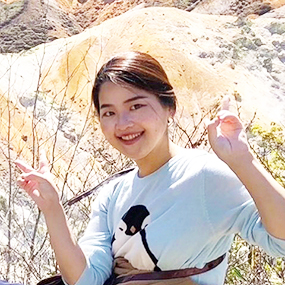
-
Kaori Sato
- Junior Research Associate, Lab for Proteolytic Neuroscience
- Talked about:
“Recent advancement in modeling Alzheimer’s disease”
- YIS is a good opportunity to improve our presentation skills in English. We can also receive valuable comments and advice directly from other researchers, including PIs in CBS. This seminar series is currently being held virtually due to the COVID-19 pandemic. Now it is not unusual to join meetings or seminars online, so giving a talk at YIS is a great chance to practice in a virtual venue. I felt a little bit nervous about giving my presentation, but this experience has certainly helped me grow.
-
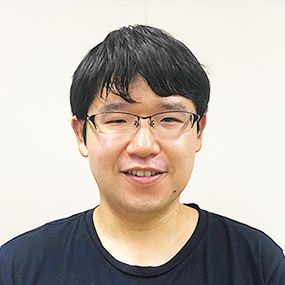
-
Kensuke Yoshida
- Ph.D. candidate, The University of Tokyo
Student Trainee, Lab for Neural Computation and Adaptation - Talked about:
“Slow wave and synaptic plasticity during sleep maximize information transmission in a spiking neuron model”
- Ph.D. candidate, The University of Tokyo
- YIS provided me with a great opportunity to give a presentation about my own research to CBS researchers including PIs, and get a lot of feedback. Compared to other conferences or seminars, there is enough time to discuss in detail with researchers from various backgrounds. In the social interaction time of YIS, we continue to talk with people interested in related topics, which strengthens the connection between laboratories in CBS and promotes collaboration. Although YIS has been held online recently, there are many participants and discussions are still active. For young researchers like me, it is a great experience you cannot get anywhere else.
-
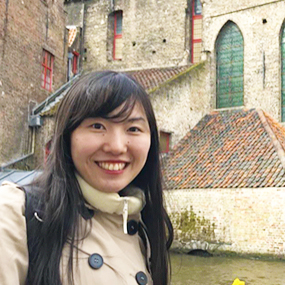
-
Ayaka Kato
- Research Associate, Lab for Circuit Mechanisms of Sensory Perception
- Talked about:
“A research on the circuit mechanism of sensory perception”
- YIS is a great opportunity to present the recent progress of my research to the CBS community. I like the encouraging atmosphere of the seminar, where experienced researchers from diverse backgrounds give constructive comments and ask inspiring questions. Presenting unpublished work in YIS can help early career researchers improve their work through feedback and discussion with people outside of their own lab.
-
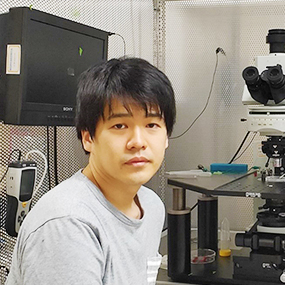
-
Kohei Onishi
- Research Scientist, Lab for Molecular Mechanisms of Brain Development
- Talked about:
“Local dendritic development of mPFC layer 2 neurons is controlled by mediodorsal thalamus input”
- Presenting at YIS was a great opportunity for me to share my project with researchers in CBS. I got good suggestions for my project from the audience, and had plenty of time to discuss after the presentation. During the pandemic, I don’t have a chance to talk with researchers outside our lab, so this kind of talk for young researchers is really helpful for our projects.
-
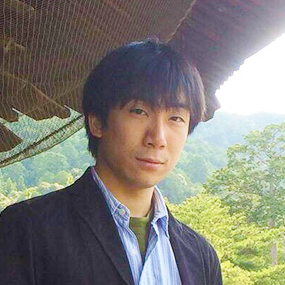
-
Kisho Obi-Nagata
- Student Trainee, Lab for Multi-scale Biological Psychiatry
- Talked about:
“Extra-large spines distort neuronal computation in synaptic disorders”
- Giving a talk at CBS Young Investigators' Seminar (YIS) was a big achievement for me and a memorable event in my development as a researcher. Through this program, I was able to learn how to give a presentation, as well as get valuable feedback from top researchers. I think this program is really wonderful, as it provides meaningful interactions for young researchers like me. I want to make use of this experience and continue to devote myself to becoming a better researcher.
-
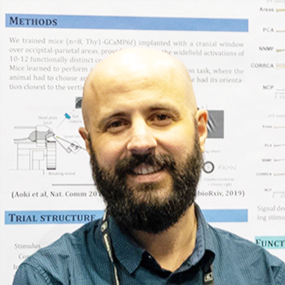
-
Javier Orlandi Gomez
- Research Scientist, Lab for Neural Circuits and Behavior
- Talked about:
“Distributed context-dependent choice information in mouse dorsal-parietal cortex”
Preprint: https://www.biorxiv.org/content/10.1101/2021.03.02.433657v1
- The Young Investigators' Seminar series gives early career researchers the opportunity to share their ongoing work among a select, yet friendly and positive, audience. It is always encouraging to see RIKEN's Team Leaders attending the seminars and providing constructive feedback to young investigators. As a former presenter, the YIS allowed me to gather invaluable input from specialists in other fields that would have been otherwise impossible. It is also a great opportunity to get to know colleagues with common interests, especially in the social events that start right after the seminars.
-
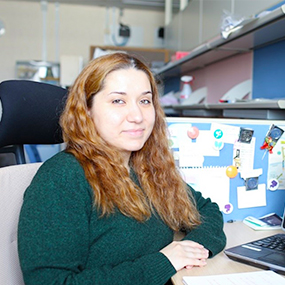
-
Fatma Rabia Urun
- Postdoctoral Researcher, Lab for Neurodiversity
- Talked about:
“Visualizing Cell Cycle Phase Organization and Control During Neural Linage Elaboration”
- CBS Young Investigators' Seminar (YIS) series was a great chance for me to present my work to my colleagues in CBS. I have been working on my project for many years now and have given oral and poster presentations in the past at different events and seminars, but I can say that the talk I gave for YIS was one of the most enjoyable presentation experiences. I enjoyed giving the YIS talk particularly because, as its name indicates, it is for young investigators to share their work and, as a result, the input received is great and helpful. There are lots of comments, constructive criticism and questions given and all these lead the speaker to look at their project through different lenses. The environment in which the talk is given is very friendly and encouraging for young scientists to engage in scientific discussions. YIS seminars are held online due to COVID-19 regulations. Personally, I find it easier and more fun to give talks online as it is easier to navigate through the talk and my social anxiety. In the past, I used to think that there was no other way of doing talks except going in front of the room, standing on the stage, and presenting while many eyes are turned toward me. However, with online presentations, I feel more at ease and am able to have fun while presenting and discussing my work with my peers and senior colleagues without experiencing social anxiety. I can easily say that my YIS talk was one of the most fun talks I have ever given. I would like to thank organizers for making it a fun experience and recommend my peers to take the chance of presenting their work in the YIS series!



